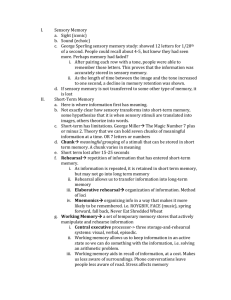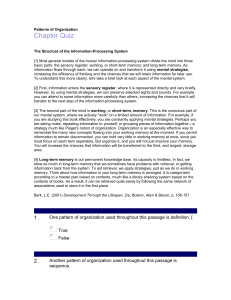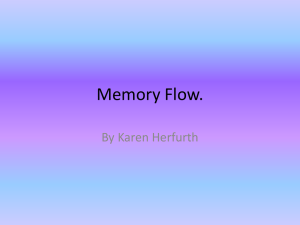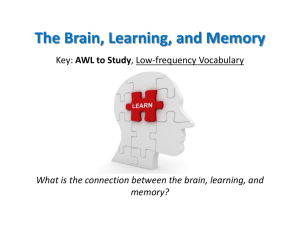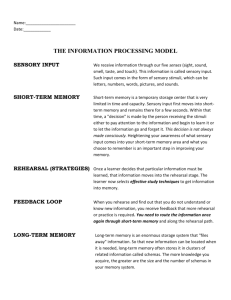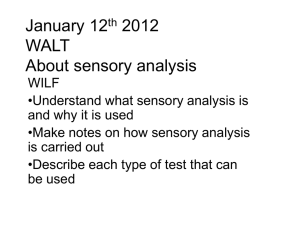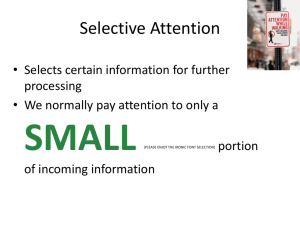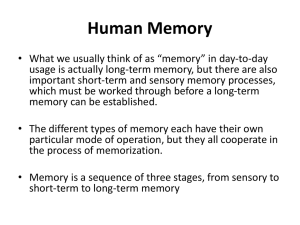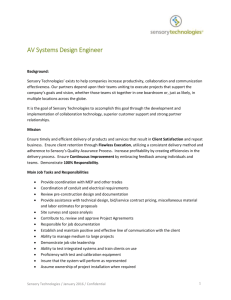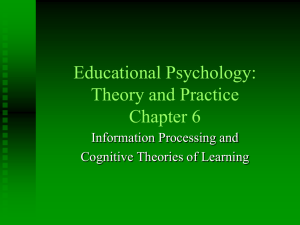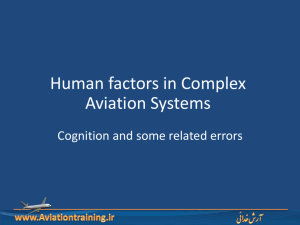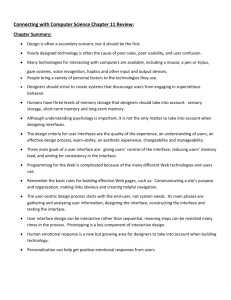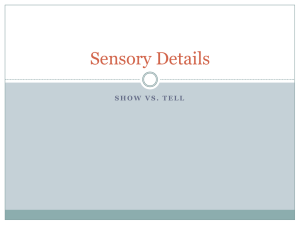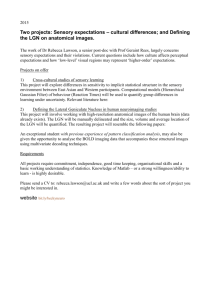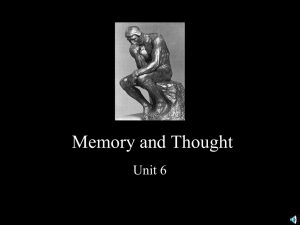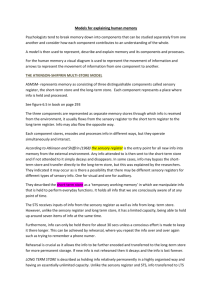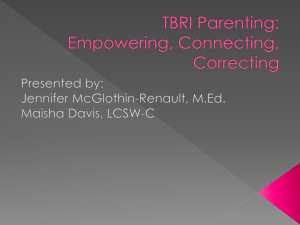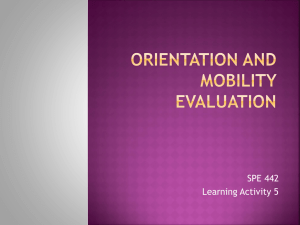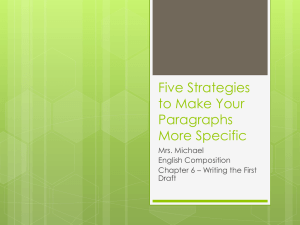Dual Storage Model of Memory
advertisement
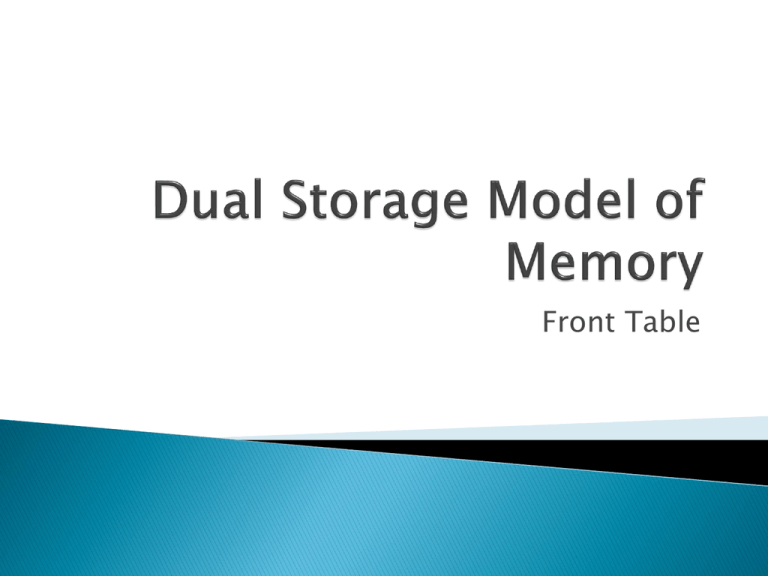
Front Table made up of 3 components 1. Sensory Register 2. Short-Term Working Memory 3. Long-Term Memory. It is know as a dual store model because of its claim that short-term memory and long-term memory are distinctly different entities. How it works: Information is received by the sensory register then sent into short-term memory where it either moved to long-term memory or is lost. Information can also move from long term memory to short-term memory Input Input Input Loss Sensory Register Loss Loss Short-Term /Working Memory Long-Term Memory 1st component of the dual storage model. Holds incoming information Characteristics: 1. Capacity unlimited 2. Forms of Storage stored in the same way it was sensed. 3. Duration remains for only a very brief time then sent to working memory if needs to be processed Example seeing a trail of light from a waving flashlight. Definition: where info is mentally processed Characteristics: has a limited capacity and can handle only so much information at one time, middle component of the Dual Store Model of Memory short term or working memory can access information from both the sensory register and long term memory. 1. Capacity limited 2. Forms of Storage: “the magical number seven plus or minus two” (p. 177) 3. Duration: approximately 5 to 20 seconds is closely associated with working memory information paid attention to moves onto working memory (p. 172) Motion Size Intensity Novelty Incongruity Emotion Personal significance Social cues Definition: memory for info over the long run (p. 18); includes both procedural and declarative knowledge 1. Capacity - Unlimited 2. Forms of Storage - explicit knowledge and implicit knowledge 3. Duration: indefinitely long; “forgetting” seems to be more of a retrieval process than storage Capacity Forms of Storage Sensory Register Unlimited Working Memory Very limited 5-9 units of information at one time Variety of Unlimited ways: language, sensory, nonverbal. Rarely saved in the precise way it is encountered. Long Term Memory Duration Saved in same Very brief 2 to 4 form as which seconds it was sensed Predominately Short 5-20 seconds auditory form Theorists disagree. Some believe you never forget you just can’t retrieve information. Others feel you can actually forget information if it is not used.
